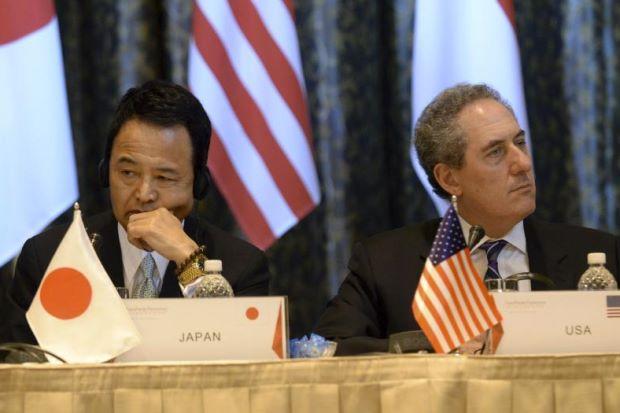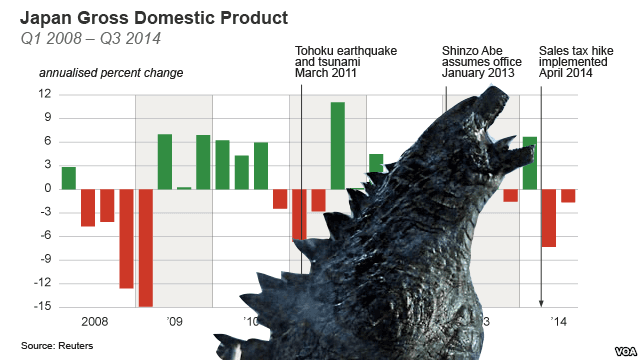Trade ministers resumed Trans-Pacific Partnership (TPP) free trade negotiations today in Singapore. Ahead of the talks Akira Amari, Japan’s economic minister, and Michael Froman, US Trade Representative, met to discuss a number of contentious issues. Despite meetings between Prime Minister Shinzo Abe and President Barack Obama in April, disagreements between the US and Japan over market access issues has stalled the 12-nation trade negotiations from moving forward.
There is some good news coming from Singapore. Jiji Press reports that Amari and Froman have agreed to resume working-level bilateral negotiations on two key farm product, beef and pork. Beef and pork have been grouped as one of the five key farm items that Japan described as “off limits” for tariff reductions.
Froman wants to implement drastic cuts to beef and pork tariffs, but Amari has called for safeguard measures on imports of the products should they surge under the TPP. The two countries seem to be struggling to find common ground on how these tariff-cutting and safeguard measures should be combined.
Despite (minimal) progress on beef and pork, Amari appears to be reluctant to budge on other sensitive farm products: rice, wheat, dairy, and sugar. “Japan will improve market access for other countries [to sensitive farming sectors] as much as possible,” explained Amari explained to reporters earlier today. But he was clear to state that Tokyo “cannot commit to complete tariff elimination for sensitive farm items.”
It is too early to tell whether Japan’s concessions over beef and pork will be enough for trade talks to progress in Singapore. Matthew Goodman, former Obama Administration official and current Simon Chair in Political Economy at the Center for Strategic and International Studies, believes that the US and Japan are close to making a deal.
“The US and Japan share most of the views on rules of the international trade system, and so I don’t think there’s much disagreement on that,” stated Goodman. “Japan has a very protected agricultural market in particular, and I think the US sees TPP as an opportunity to really break through on those issues.”
Analysts believe that other sensitive provisions – like pharmaceutical, intellectual property, and textiles – between the US and Japan will be more easily resolved due to trade-offs achieved in agriculture.
A Japan-US trade breakthrough would also greatly benefit Obama’s pivot to Asia. If Tokyo and Washington DC are able to come to an agreement, then TPP negotiations between all 12 participating countries can progress and potentially end in a timely manner (the Obama Administration set the end of 2014 as a soft deadline). Implementing TPP would greatly benefit the Obama Administration, as it would open key markets for American businesses, reaffirm US staying power, and legitimize the pivot to Asia.
“The best thing Japan could do [for Obama’s pivot to Asia] is to come to an agreement on the TPP,” asserted former White House adviser on Asia, Dr. Victor Cha. “The US has no other real demands of Japan other than that.”
The clock is ticking for TPP. If it is not completed in a timely manner, then there is the potential for China to fill the void with its own regional economic initiative, the Regional Comprehensive Economic Partnership (RCEP). Beijing, which isn’t participating in TPP negotiations, doesn’t want to be overshadowed by US-led trade negotiations in Asia.
With more at stake than just the conclusion of a regional trade agreement, Froman is going to have to push his counterpart in Tokyo to make some meaningful progress on key market access issues. If he is able to make a deal with Amari, then TPP talks could get a new lease on life. Let’s hope progress can be made in Singapore.
Originally published in Izakaya Politics.



